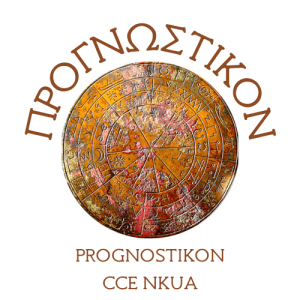By K. Papadimitriou
Cyprus, the “golden-green leaf thrown into the sea”, the “Aphrodite’s island”, is the crossroads of history and geopolitics. The third largest island, strategically located in the Eastern Mediterranean has long been a focal point of historical, political, economic, cultural significance, and holds a pivotal role in the complex geopolitical landscape of the Eastern Question. From the medieval ages to the contemporary times the strategic location of the island at the crossroads of major maritime trade routes connecting Europe, Asia and Africa, coupled with its national resources and production capabilities, have made it a hub for trade between East and West, a coveted possession for many powers.
The large number of invaders throughout the island’s history demonstrates its immense geostrategic and geoeconomic importance. Assyrians, Egyptians, Persians, Romans did not succeed in altering the Greek character of the island that had been acquired from the 13th to 11th century BC, when it was settled by the Mycenaean – Achaean Greeks. Cyprus’s Greek identity was combined with the Christian Orthodox faith of the Byzantine Empire until 1191, when the island came under the rule of successive foreign powers. Its close proximity to the Holy Land made Cyprus a crucial staging point for Crusades and other military campaigns in the Levant.
After the Third Crusade, Cyprus was seized by King Richard I (the Lionheart) of England in 1191 and subsequently sold to the Knights Templar, and then to Franks (Guy of Lusignan) in 1192, establishing the Kingdom of Cyprus. Under the Lusignan dynasty (1192 – 1489) the island provided a secure base, for military operations, facilitated trade activities in the region and it was a center for coordination, refuge, and resupply for Crusaders. During that period Cyprus generated revenue from trade, acting as an entrepot between Armenia, Syria, and Egypt on the one hand and Western Europe on the other, with Famagusta playing an enhanced role as middleman with eastern traders. In the middle 14th century Famagusta became the prime base of Genoese, Venetian, Catalan and other western merchants acting as a link between western Europe and the Muslim foe. Indeed, Papal embargoes on trade with the infidel and difficulties on direct access to Muslim ports enhanced significantly Famagusta’s and Cyprus’s importance (David Abulafia, 1992, p. 77-78).
During the Middle Ages the island had a significant production of agricultural goods, the principal products being wheat, barley, olives and grapes. It is said that the excellence of the Cypriot wine led the Ottoman Sultan Selim II to send an expedition in 1570 to conquer the island. By 1571 the island passed in the hands of the Supreme Porte, for three hundred and seven years, becoming a part of the Ottoman Empire and the Eastern Question.
In the 19th century, when the Ottoman Empire was descending its inexorable path to oblivion and Great Power rivalries over the division of the inheritance of the “sick man of the Bosphorus” were at their height, Cyprus was an important field of this rivalry. Since 1774, through the treaty of Kuchuk-Kainarji, the Russians had dramatically increased their influence in the Ottoman Empire as protectors of the empire’s Christian Orthodox populations. The British Empire was trying to eliminate or at least to restrict the Russian access and influence in the Mediterranean Sea in order to protect its route to India. France from her part was trying to consolidate her influence in the Middle East and the Holy Places. The attempt by Louis Napoleon (Napoleon III), after his accession to throne in 1852, to make France a great military and naval power again, as soon as possible, and his desire for revenge after Bonaparte’s defeat and French humiliation, worried the British, who considered for one more time France as a possible threat.
The opening of the Suez Canal in 1869 increased greatly the strategic importance of Cyprus and gave to the British Empire the incentive to pursue the acquisition of the island to obtain a secure base for controlling the sea trade route to India and watching over “an unstable Anatolia”. The long-awaited opportunity to acquire Cyprus was given to the British after the Russo-Turkish war of 1877 and the Treaty of San Stefano. Just ten days before the Congress of Berlin, on June 4th, 1878, they signed in Constantinople a secret agreement with the Ottoman Empire for British possession and administration of the island, in return for protecting the latter against Russian Empire (Historical Section of the Foreign Office, 1920, p. 29).
Cyprus remained under the British rule until 1960 when the independent Republic of Cyprus was established. The enormous importance of the island to British strategic and economic interests is clearly demonstrated by the fact that Britain sought and succeeded in retaining three percent of the island’s territory as Sovereign Base Areas, as well as various ‘retained sites’, overflying rights and various rights of passage. These arrangements ensured a continuing British presence on the island and somewhat reduced the complete sovereignty and independence of the new political entity. It is not in the scope of this article to refer to the events that led to the Turkish invasion and occupation of the 37% of the island fifty years ago. However, the strategic importance of the island for Turkey is made clear by Ahmet Davutoglu’s confession:
“Even if there was not a single Muslim Turk there, Turkey should have maintained a Cypriot Question. No state can remain indifferent to such an island located in the heart of its vital space (Lebensraum)” (Ahmet Davutoglu, 2010, p. 279)
Today the Republic of Cyprus, the only divided country in Europe, holds a significant geoeconomic value due to its strategic location, political alliances, and its robust and growing economy. Located at the crossroads of Europe, Asia and Africa is a strategic gateway for trade and investment between these regions. As a member of the EU since 2004 and euro area since 2008, benefits from economic and political stability and enjoys access to the large European market. The economy of Cyprus is renowned for its agility and diversity, and it is dominated by services which accounted for 84,4% of gross value added in 2022, while industry accounted for 8,3%, construction 5,4%, and agriculture, forestry and fishing for 1,8% (Cyprus Profile, 2023). According to European Commission, economic activity in Cyprus is expected to grow robustly in 2024, while inflation is continuing its downward trend towards the 2% target (European Commission, 2024)
Cyprus has developed a robust banking and financial services sector attracting international business and investments. Acting as a financial hub, it served as a portal for investment from the West into Russia and Eastern Europe and more recently into Asia, Middle East and South America, while it is used as an entry point for investment to Europe from businesses from outside the EU. The country’s favorable tax regime and business – friendly environment has made it an attractive destination for foreign investment, while its modern ports, airport and communication networks facilitate trade and commerce.
Another important economic pilar for the country is tourism, which contributes significantly to her GDP and employment growth. Moreover, the discovery of large natural gas reserves in its Exclusive Economic Zone makes Cyprus a potential energy hub in the Eastern Mediterranean region, dramatically increasing the country’s geostrategic and geoeconomic value.
In the contemporary manifestation of the Eastern Question with rivalries and bloody conflicts in Eastern Europe and Middle East regions, Cyprus’ significant and multifaceted geoeconomic value, increases even more. Its strategic location serving as a basis of operations and controlling the sea routes of communication, together with her robust economy, financial services and energy resources make Cyprus a valuable partner and ally for controlling not only Eastern Mediterranean region, but also Eastern Europe and the Middle East.
REFERENCES:
Robert Biddulph, Cyprus, Proceedings of the Royal Geographical Society and Monthly Record of Geography, Dec., 1889, New Monthly Series, Vol. 11, No. 12 (Dec., 1889), pp. 705-719, Wiley on behalf of The Royal Geographical Society (https://www.jstor.org/stable/1801093)
Historical Section of the Foreign Office, History of the Eastern Question, Handbooks Prepared Under the Direction of the Historical Section of the Foreign Office, H.M. Stationary Office, London, 1920 (https://www.loc.gov/item/a22000877/)
David Abulafia, Review: The Kingdom of Cyprus and the Crusades 1191 - 1374, by Peter W. Edbury, British Journal of Middle Eastern Studies, Vol. 19, No. 1 (1992), pp. 77-78, Taylor & Francis, Ltd. (https://www.jstor.org/stable/195436?searchText=kingdom+of+cyprus&searchUri=%2Faction%2FdoBasicSearch%3FQuery%3Dkingdom%2Bof%2Bcyprus%26so%3Drel&ab_segments=0%2Fbasic_search_gsv2%2Fcontrol&refreqid=fastly-default%3Ab92b00f0215d2890feb87479320e59aa)
Ahmet Davutoglu, Το Στρατηγικό Βάθος, μετάφραση Νικόλαος Ραπτόπουλος, Εκδόσεις Ποιότητα, 7η Έκδοση, Αθήνα, 2010
Cyprus Profile, Diversifying for Growth, December 2023 (https://www.cyprusprofile.com/page/economy?lang=en)
European Commission, Economic Forecast for Cyprus, 15 May 2024 (https://economy-finance.ec.europa.eu/economic-surveillance-eu-economies/cyprus/economic-forecast-cyprus_en)



